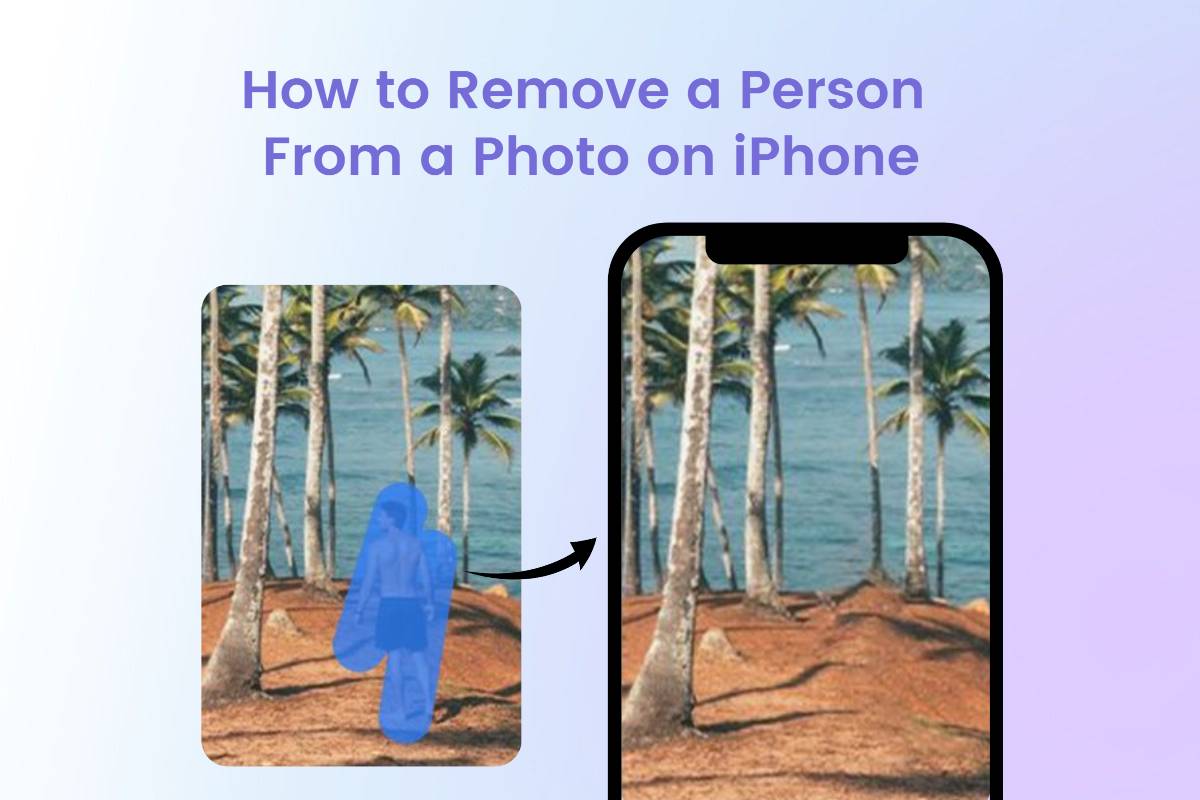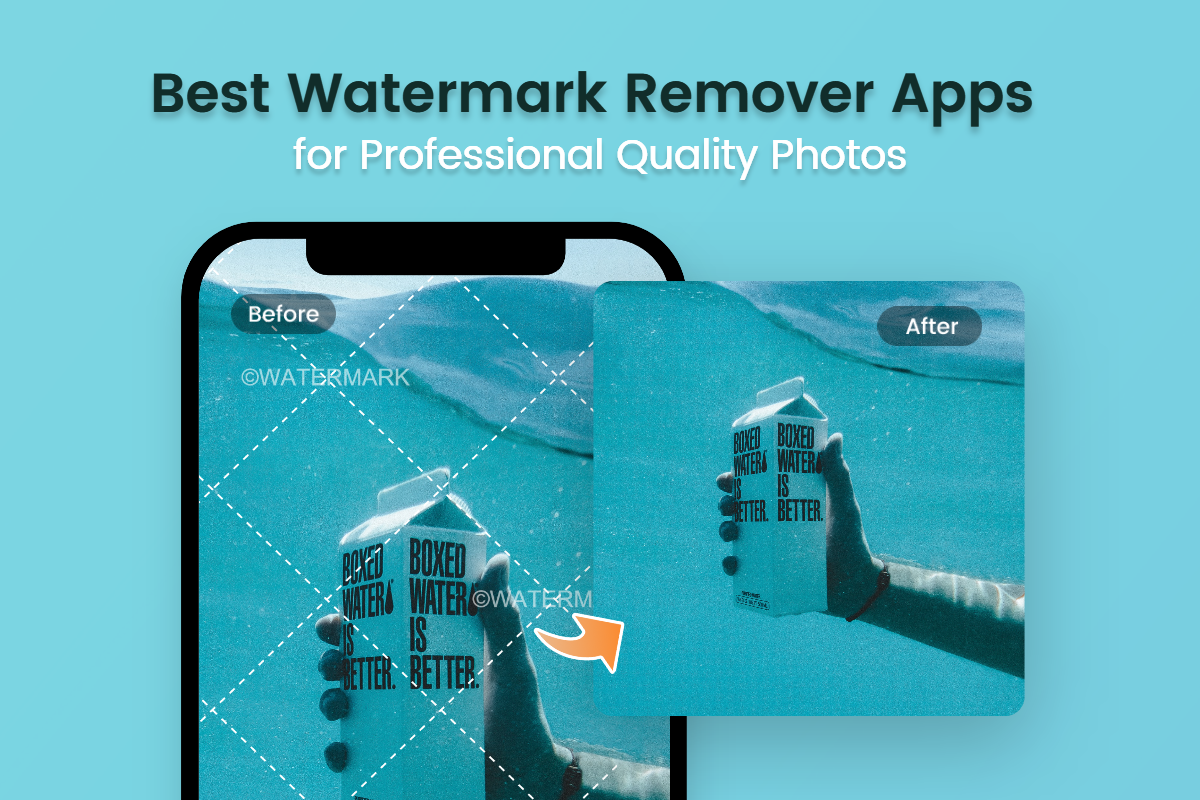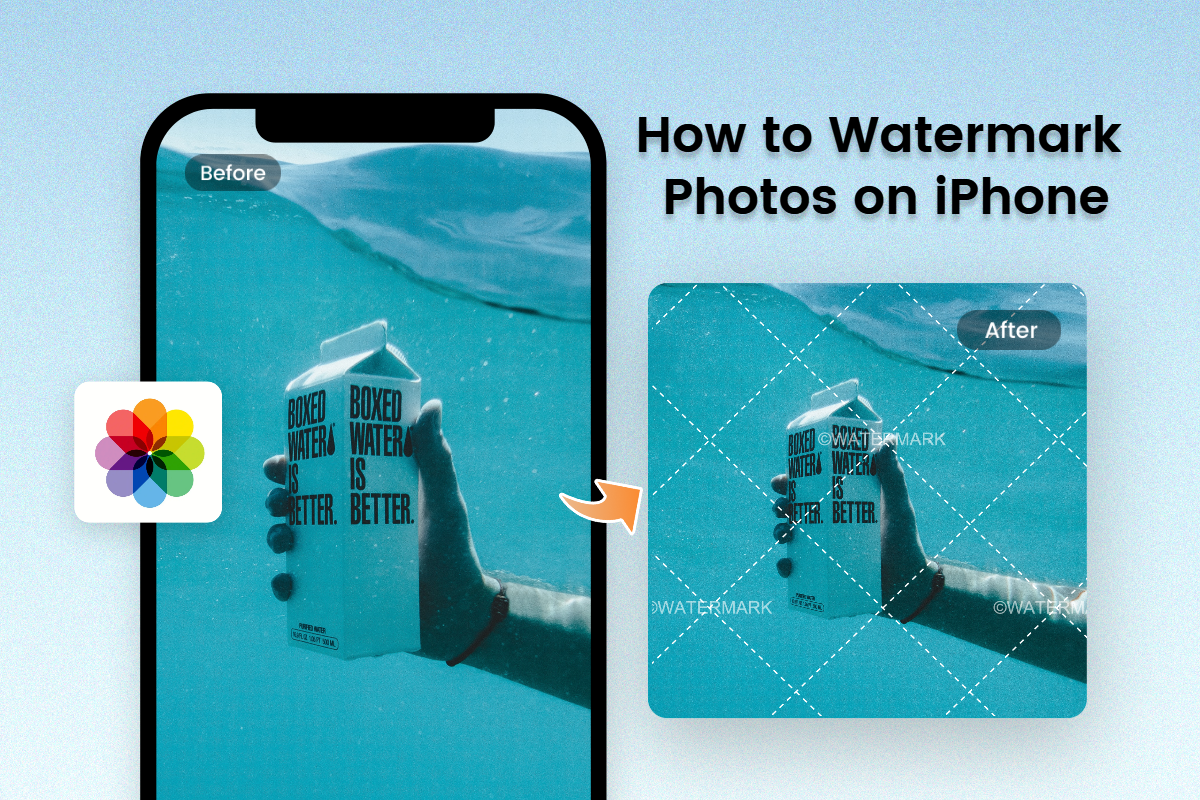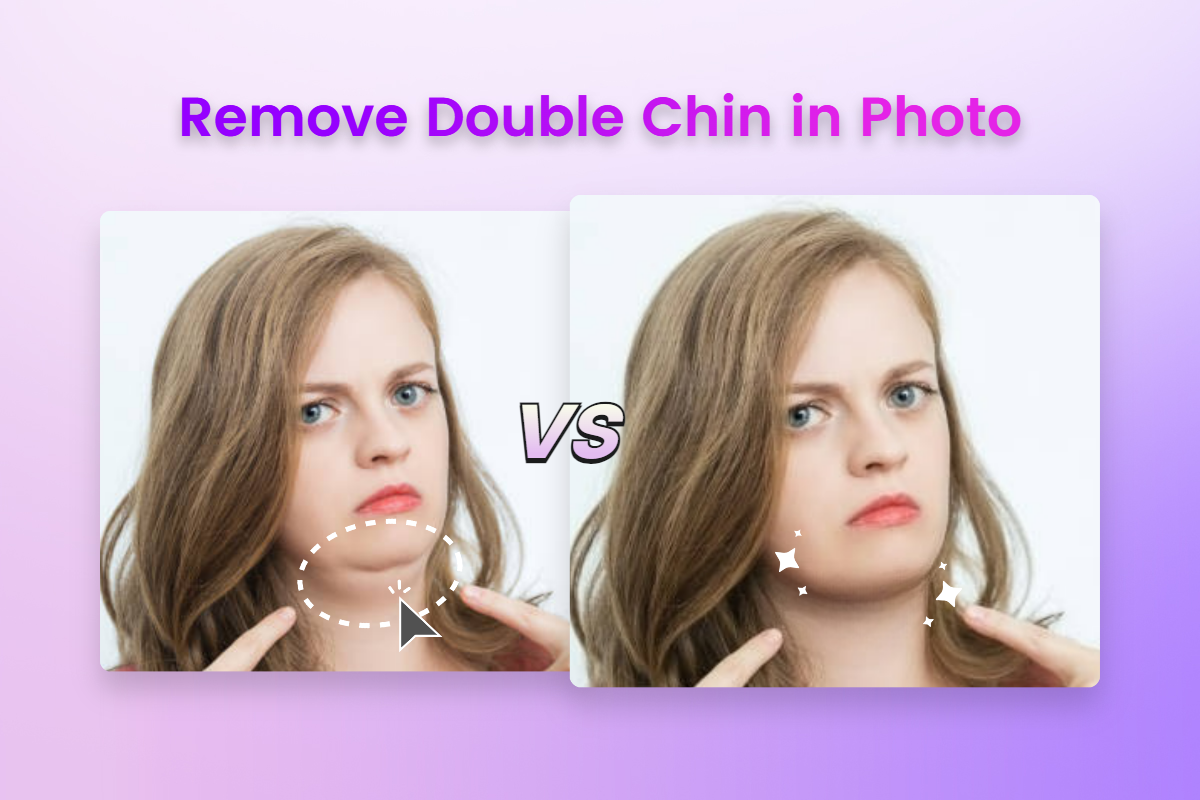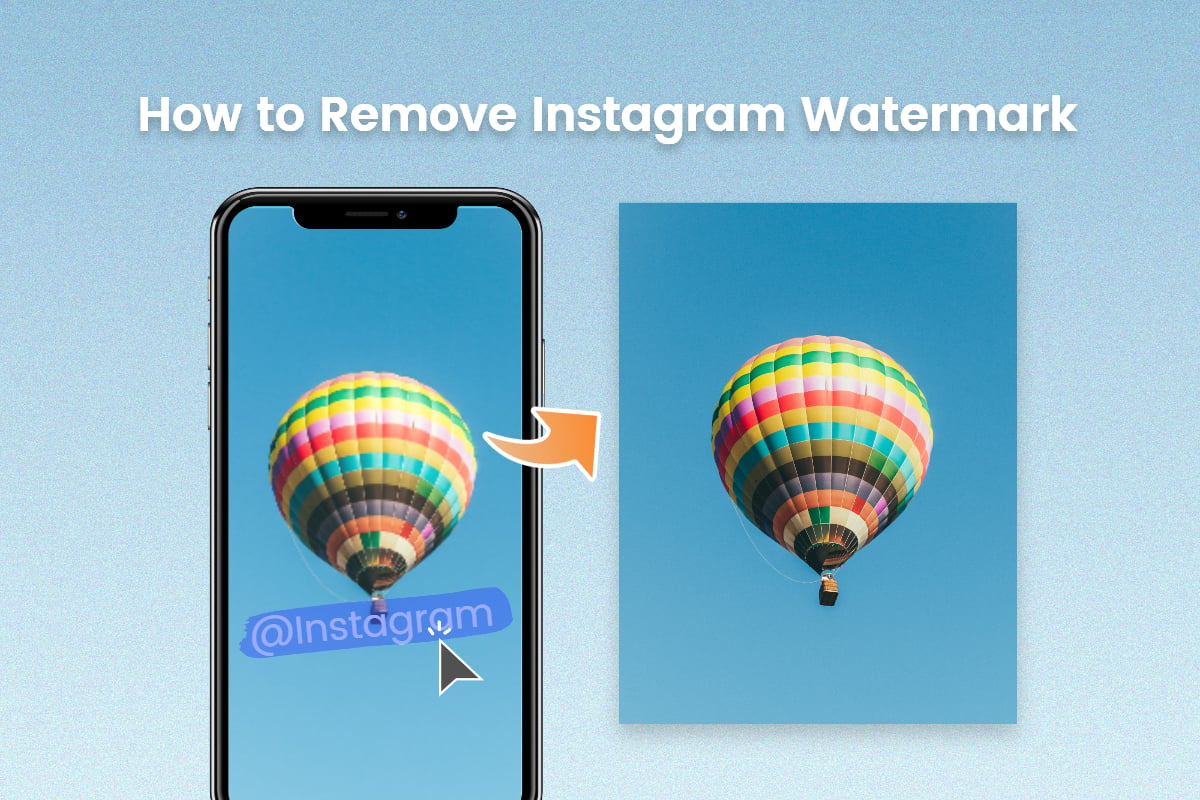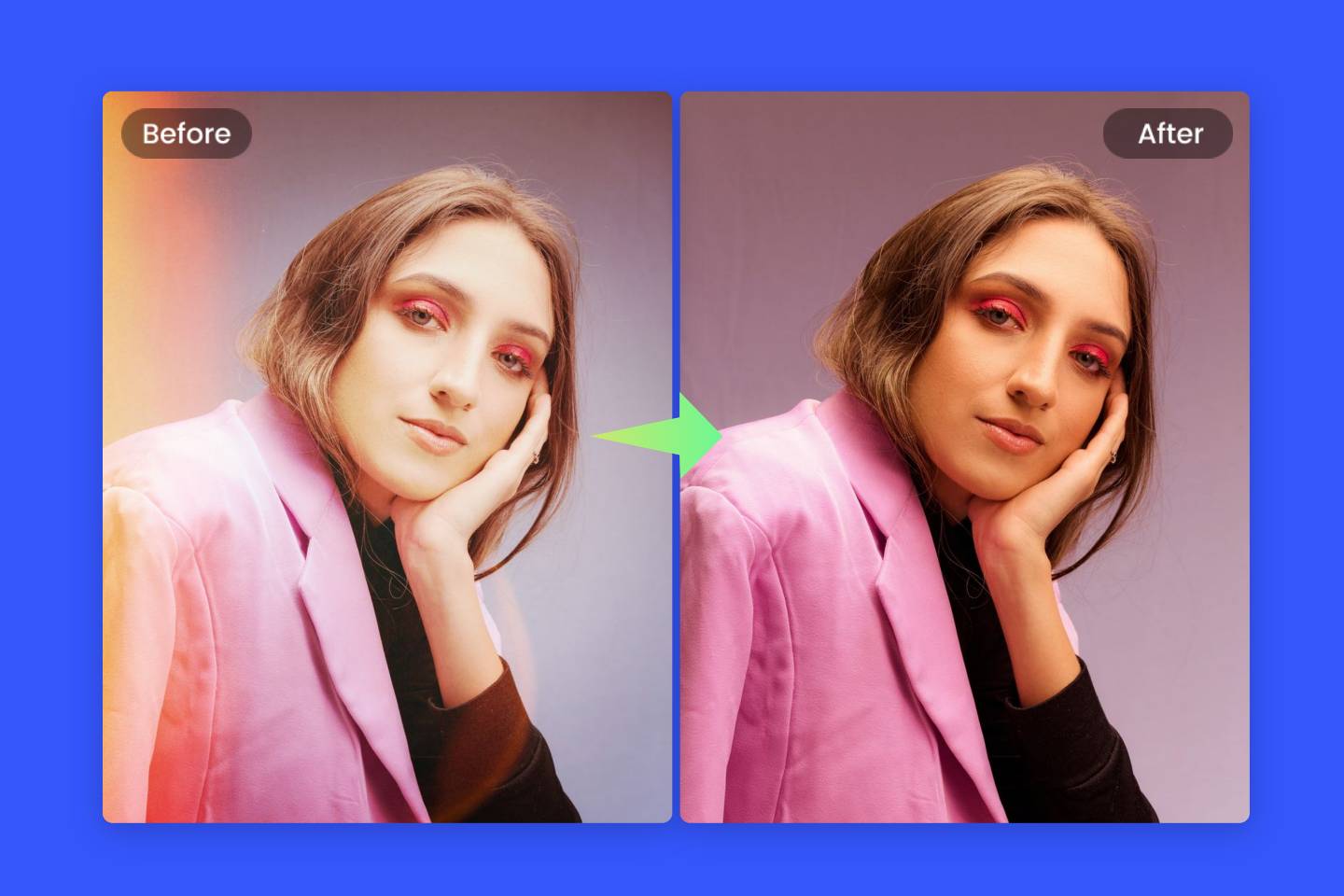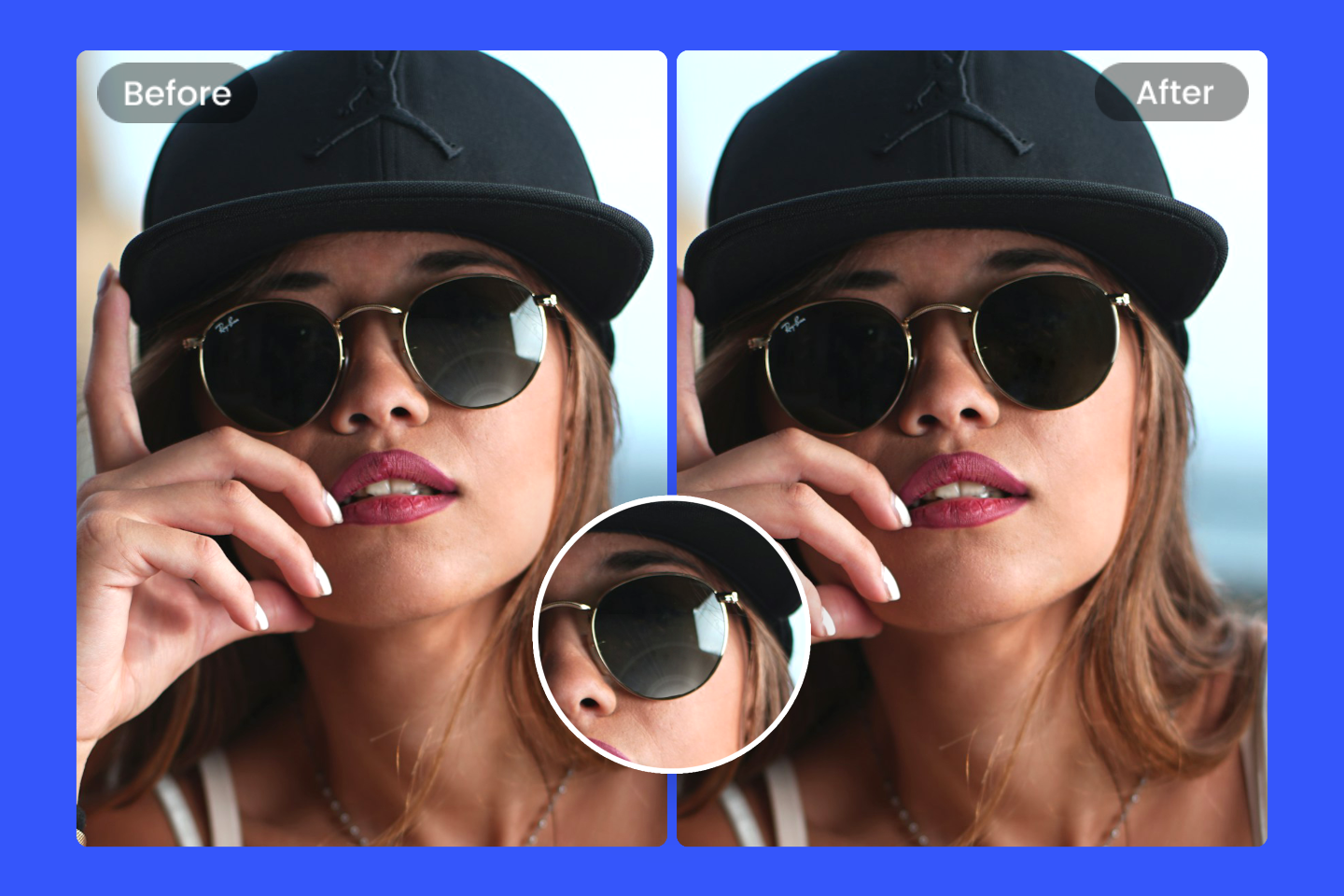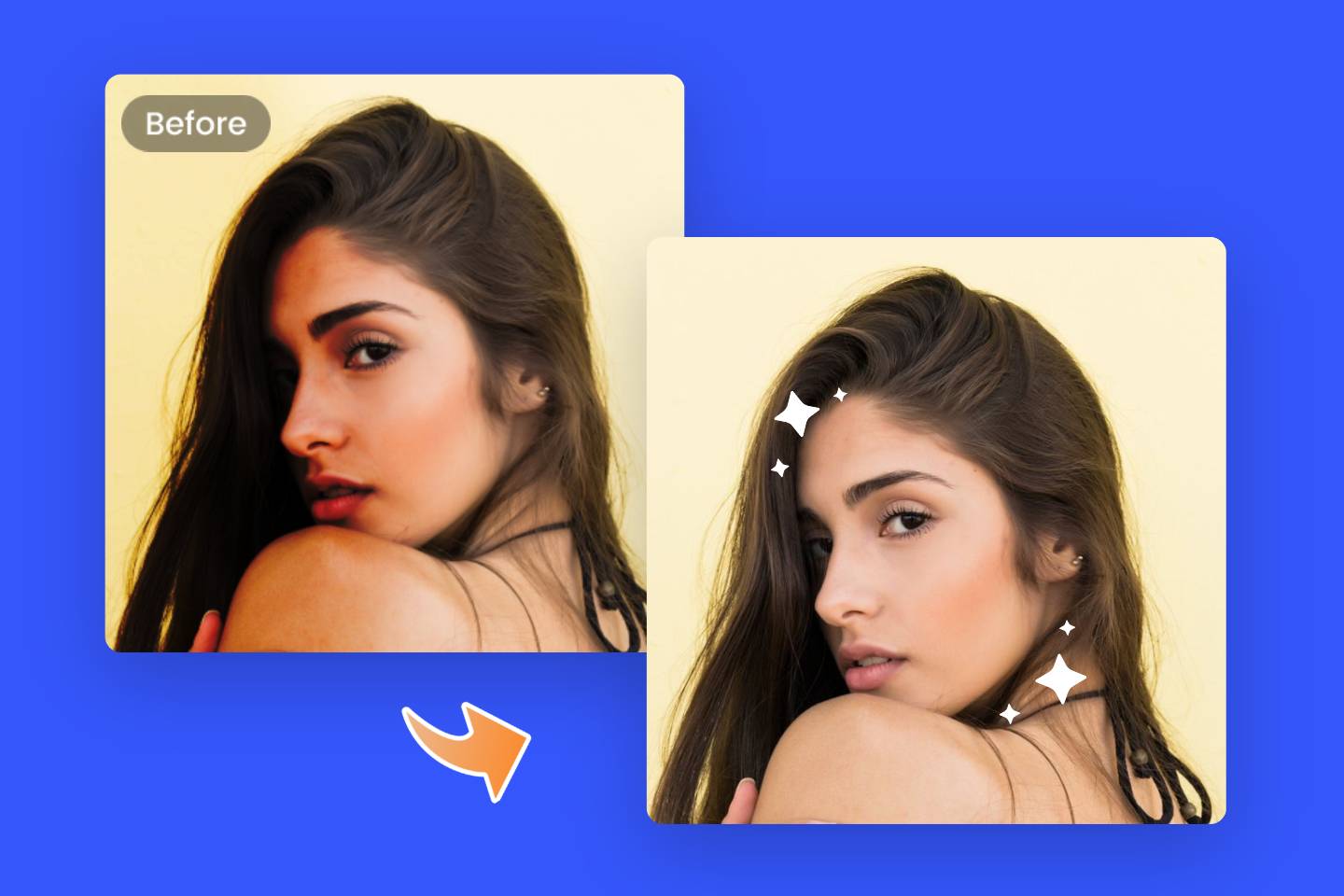How to Remove an Object From a Photo in Photoshop?

It is very difficult to take a perfect photo. Most of the time, we need to remove unwanted objects from the photo. Photoshop is a great tool for removing objects from photos. This article will mainly introduce 5 methods to remove objects in photos with Photoshop.
Table of Contents
1. Content-Aware Fill
Content-aware fill is the simplest and most effective of all methods. It fills the selection by filling in the content instead of the color. Works best on simple backgrounds.
1) Go to "File" > "Open" and "Open Image" and copy
Let's start with "File" > "Open" and select the image from the file to work with to open it in Photoshop.
For this approach, we will, as always, want to work in a non-destructive way. So keep the original image.
We'll duplicate it and work on the duplicated layer. That way, if anything goes wrong, we'll still keep an unedited version of the image.
So, with the image open in Photoshop, go ahead and right-click on it in the "Layers" window. Then select "Duplicate Layer" from the list that appears.
You should now see two copies of the layer in the "Layers" window - the original and the duplicate.
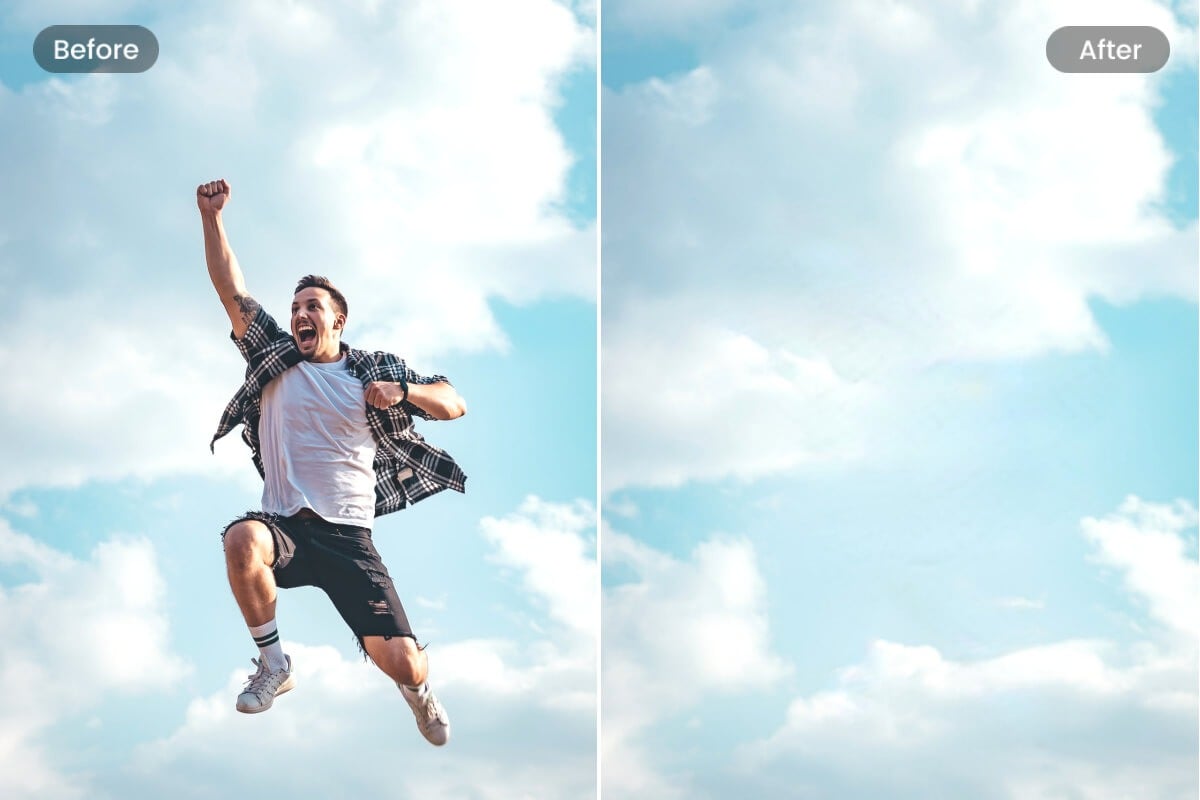
2) Use the lasso tool to select the object you want to delete
The next step is to select the objects to delete. This doesn't have to be an exact selection. Just make sure it contains the entire part of the object you want to remove while trying to keep as much of the unselected background as possible.
Let's use the Lasso tool when making a rough selection. It can be selected from the toolbar at the bottom left of the screen by clicking on the icon shown below. Useful when making rough and quick selections.
With the tool selected, click and hold the mouse. Also, draw a closed loop around the subject to represent the scope of the selection.
3) Choose "Edit" > 'Content-Aware Fill" to generate a fill based on surrounding pixels
Once the selection is complete, you will see that the solid line has become a line of moving points. At this point, go to "Edit" > "Content-Aware Fill".
Alternatively, you can press Shift + Backspace [Windows] / Shift + Delete [mac] to bring up the Fill dialog.
Make sure "Content Aware" is selected in the drop-down list.
Using both methods, tick the "Color Fit" option.
The tool works like magic. It will automatically analyze the surrounding pixels in seconds and generate an educated fill of the selected area. You can easily remove people, text, or any other unwated objects from photos with ease.

2. Healing Brush Tool
The healing brush is best used when removing small areas of content. With the powerful automatic identification function of PS, the success rate of automatic repair is greatly improved.
Healing brushes are often used to remove blemishes and pimples when retouching portrait photos. If the results are consistently unsatisfactory, it may be due to the complex environment surrounding the repaired area.
This tool works similarly to the clone stamp tool. Pixel replacement object or area at the sampling location. However, the healing brush tool blends the tone and texture of the sampled pixels with the new area to create a more blended result.
Specific steps:
- Press Control + J (Win) or Command + J (Mac) to create a duplicate background layer. Then select the healing brush tool from the toolbar ( J ).
- Change the sliders in the brushes panel to adjust brush size and brush hardness.
- Select a sample point close to the object you want to remove.
- After selecting sample pixels, brush over the object to remove it.
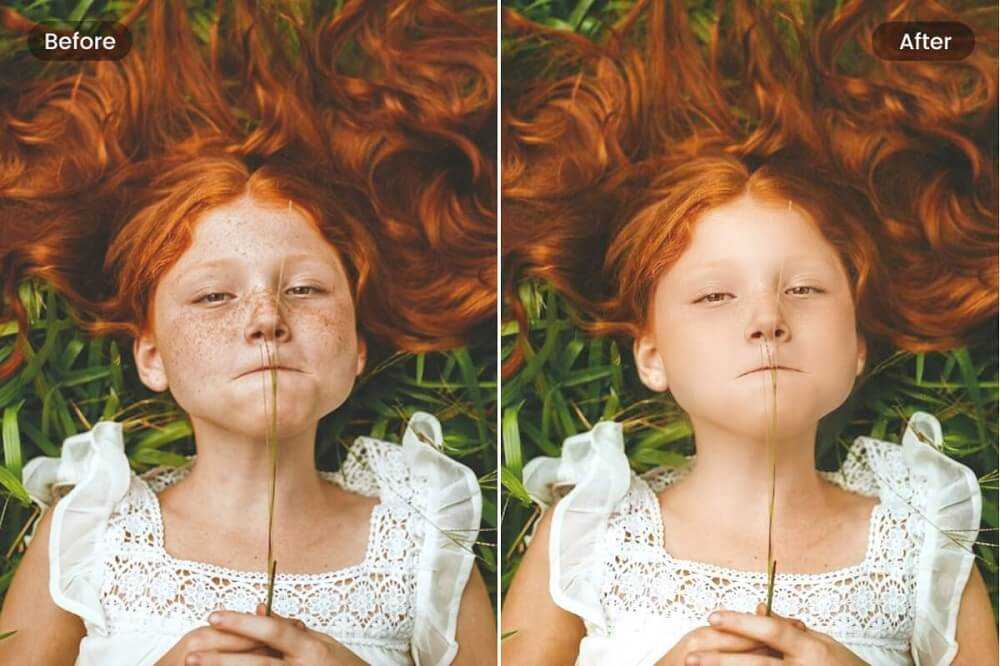
3. Spot Healing Brush Tool
Unlike standard healing brushes that require you to get pixels from an area, this brush is simpler. You just paint on the blemish without acquiring pixels. Spot healing brush uses AI technology to automatically select similar pixels to choose the best replacement pixel for the area.
Regardless of the size and complexity of the spots and blemishes you want to remove, you can remove them with the spot healing brush.
Specific steps:
- Create a new layer by clicking "New Layer" in the "Layers" panel or navigating to "Layers" on the top menu bar. Selecting "New" and choosing "Layer". Rename the new layer.
- Click the zoom tool or by pressing the keyboard shortcut Command and + to zoom in on the photo until the blobs are clearly visible.
- Select the "Spot Healing Brush", and set the brush size and hardness.
- Choose a brush type. The photoshop spot healing tool has three brush types: create texture, content awareness, and proximity match.
- Check the "Sample All Layers" box and set the "Blending Mode".
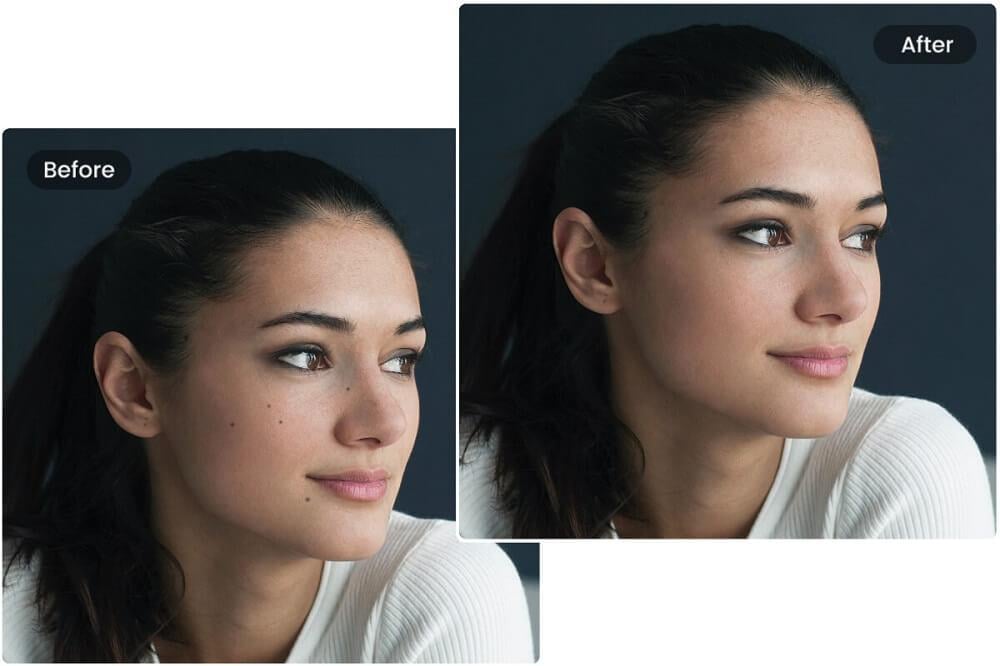
4. Clone Stamp Tool
Using the clone stamp tool to remove objects in a photo is an old-fashioned way. The clone stamp tool works by sampling one area of a photo and painting on another. That is, copy and paste the part you want to the part you don't want to keep, to cover and replace the removed content.
Specific steps:
- Hold down the "S" key to quickly open the "Clone Stamp" tool.
- While holding down the "Alt" key on your keyboard, left-click somewhere near the area around the object you want to delete.
- Use the brush to brush over the object. Repeatedly, the object is replaced by the area next to it.

5. Patch Tool
Another great tool for removing objects is the patch tool. It works like a healing brush tool. The difference is that the healing brush tool is fully automatic, while the patch tool is a manual selection of reference areas. This tool allows you to find the most similar part of an image and create a new fill based on that part.
1) Open the image by going to "File" > "Open" and select the image from the file, then duplicate the layer.
As always, we'll start by opening the picture. Choose "File" > "Open", and browse the file to find the image you want to work with.
With the image open, go to the Layers window and right-click on the layer. From the list that appears, choose "Duplicate Layer". Note that this can also be done by pressing Ctrl+J [Win] / Cmd+J [Mac].
By duplicating the original image, we can ensure that there is always an unedited version of the photo to restore, allowing us to work non-destructively.
2) Right-click the "Spot Healing Tool" in the left toolbar and select the patch tool from the drop-down list.
For this method, we will use the patch tool, which is usually used to mask larger parts of the image.
It's hidden under the "Spot Healing Tool" below the left toolbar, so it can be selected by right-clicking the icon shown below and selecting the "Patch Tool" from the list that appears.
Once you've selected the correct tool, you should see an options bar at the top of the screen where you can set the tool's properties. Here, make sure that "Normal" is selected in the "Patch" drop-down list, and that "Source" is also selected.

3) Click and drag with the mouse to create a selection around the area you want to delete.
Using this tool will also involve making a selection around the area you want to delete. So go ahead and click and drag the unwanted objects with the mouse to create a closed loop.
4) Find the area in the image you want to replace and click and drag it onto it.
When selection is enabled, zoom out and identify the area to sample from and use it as a surrogate for the area to delete.
Then, click and drag the selection to the area you want to use as the source.
When satisfied, release the mouse and press Ctrl + D [Win] / Cmd + D [Mac] to deselect.

Summary
These are the top 5 ways to remove objects from photos with Photoshop. In addition to these, you can also use Fotor's online object remover to quickly and easily remove unwanted objects from your photos.
